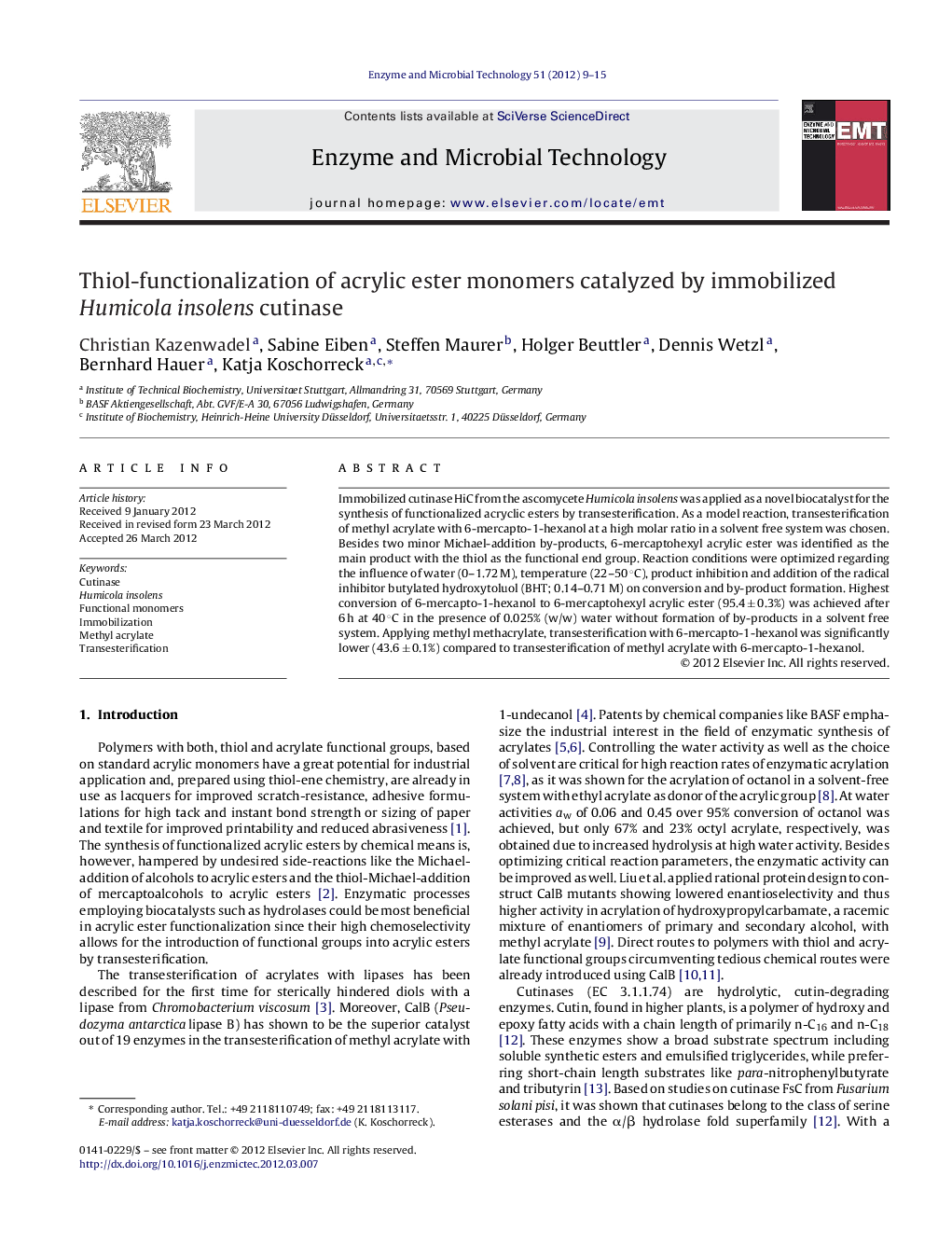| Article ID | Journal | Published Year | Pages | File Type |
|---|---|---|---|---|
| 17312 | Enzyme and Microbial Technology | 2012 | 7 Pages |
Immobilized cutinase HiC from the ascomycete Humicola insolens was applied as a novel biocatalyst for the synthesis of functionalized acryclic esters by transesterification. As a model reaction, transesterification of methyl acrylate with 6-mercapto-1-hexanol at a high molar ratio in a solvent free system was chosen. Besides two minor Michael-addition by-products, 6-mercaptohexyl acrylic ester was identified as the main product with the thiol as the functional end group. Reaction conditions were optimized regarding the influence of water (0–1.72 M), temperature (22–50 °C), product inhibition and addition of the radical inhibitor butylated hydroxytoluol (BHT; 0.14–0.71 M) on conversion and by-product formation. Highest conversion of 6-mercapto-1-hexanol to 6-mercaptohexyl acrylic ester (95.4 ± 0.3%) was achieved after 6 h at 40 °C in the presence of 0.025% (w/w) water without formation of by-products in a solvent free system. Applying methyl methacrylate, transesterification with 6-mercapto-1-hexanol was significantly lower (43.6 ± 0.1%) compared to transesterification of methyl acrylate with 6-mercapto-1-hexanol.
Graphical abstractFigure optionsDownload full-size imageDownload as PowerPoint slide
